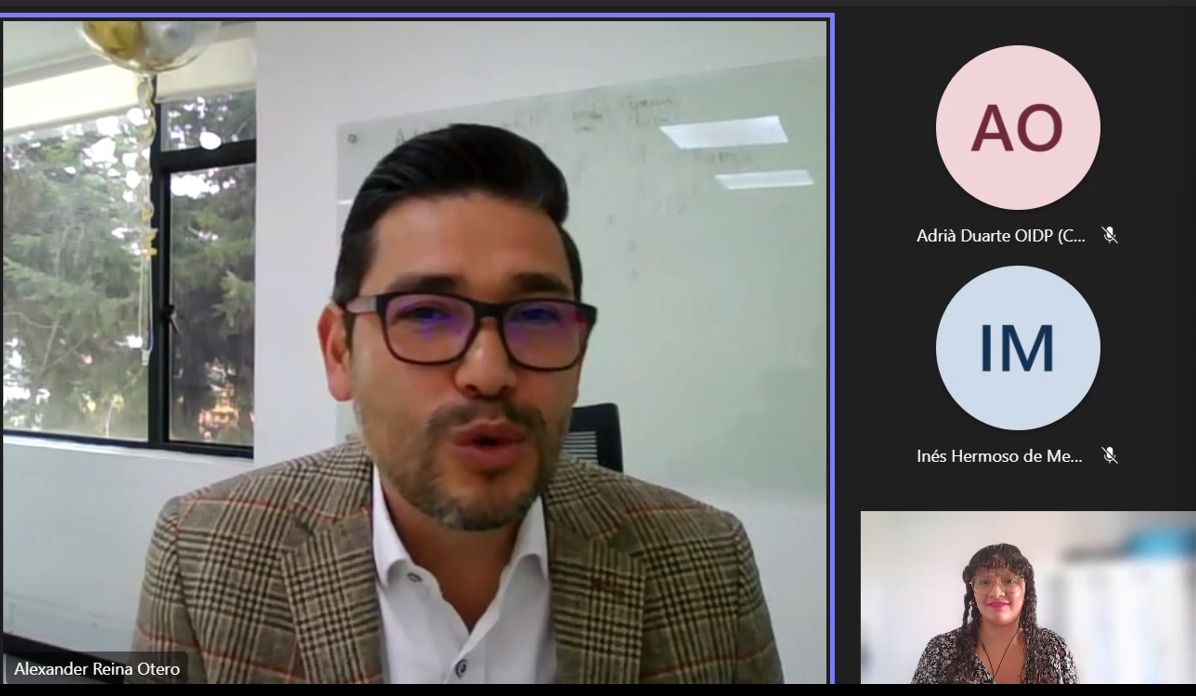IOPD interviews Alexander Reina Otero, Director of the District Institute of Participation and Community Action of Bogota, on the occasion of the upcoming International Congress on Participatory Budgeting 2023, to be held July 26-28 in the Colombian capital.
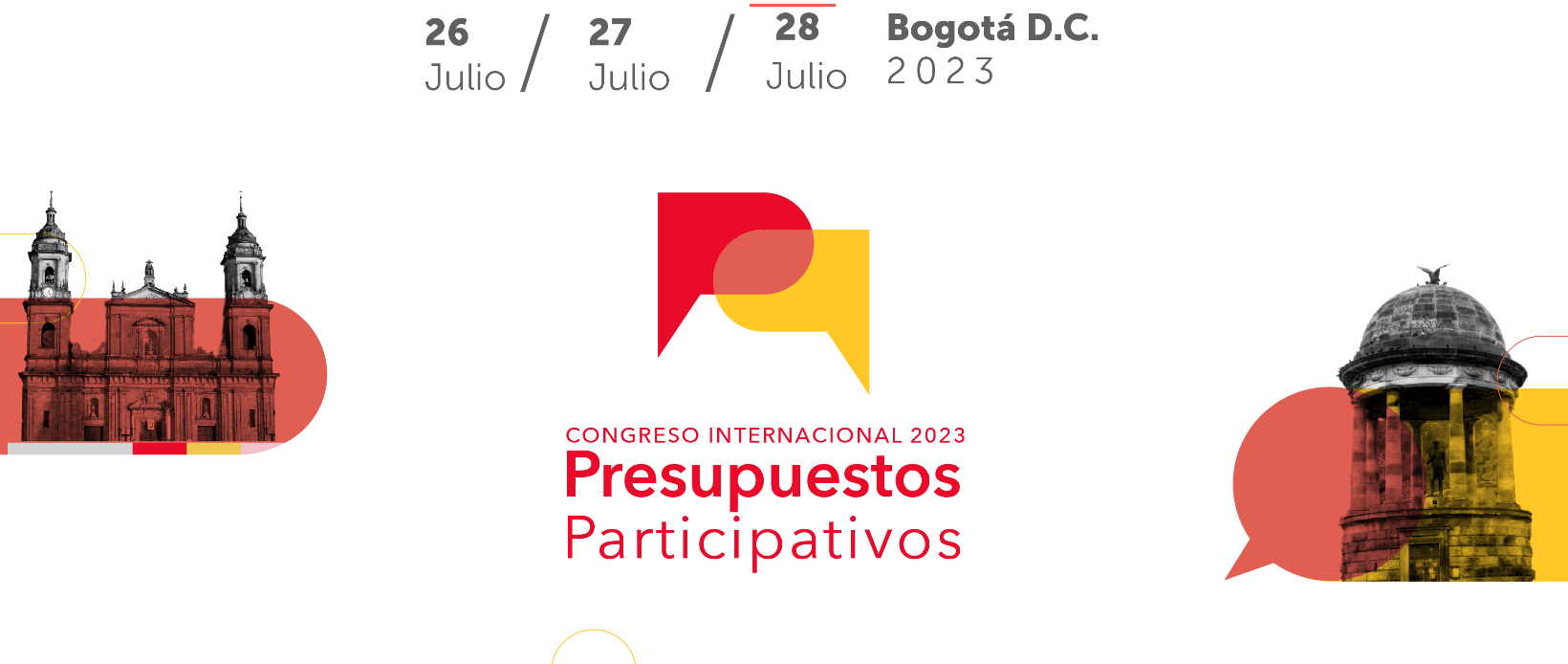
1. What is the District Institute of Participation and Community Action of Bogota (IDPAC, Instituto Distrital de la Participación y Acción Comunal de Bogotá) and what are its tasks to promote participatory democracy?
The IDPAC emerged after the 1991 Political Constitution of Colombia. It was created by the first left-wing mayor of the city. We are the entity in charge of promoting the right to participation in a context such as ours. Colombia has a very closed history to citizen participation: during the period of the National Front, governance was very vertical, power was centralized in the ruling classes, there was a lot of political violence. All this is changing with the IDPAC through the 16 groups that we serve and work to promote the right to citizen participation.
IDPAC is in charge of the conditions to promote participation through these pillars that are very important to us:
2. What are the current context, challenges and opportunities for citizen participation in Bogota?
Recently in 2021 we had a social outburst, a very strong mobilization of citizens, combined with the beginning of Claudia Lopez's mayoralty in 2020. These two phenomena have reinforced the mission to modernize and reformulate the citizen participation system. If we take Sherry Arnstein's ladder of participation as a reference, we realize that commonly we do not advance beyond the processes of socialization of information (level 3 of 8). It is necessary to go further. That is why the biggest challenge is to make citizen participation effective and efficient, and one way to do this is to inject capital into it.
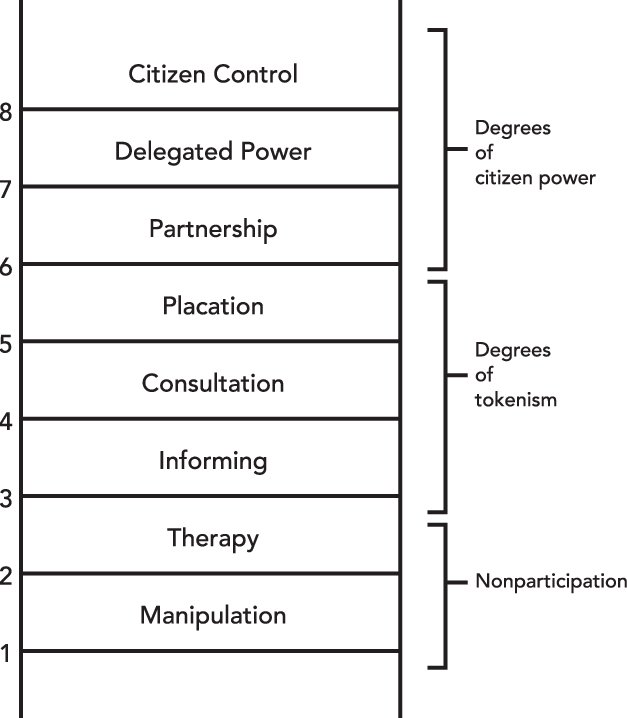
In general, people complain that participation is meaningless because they are used to the idea that democracy means going to vote every two years. That is why training and education processes are important, as well as the promotion of democratic participation, so that people become involved in their daily lives in our city's democracy.
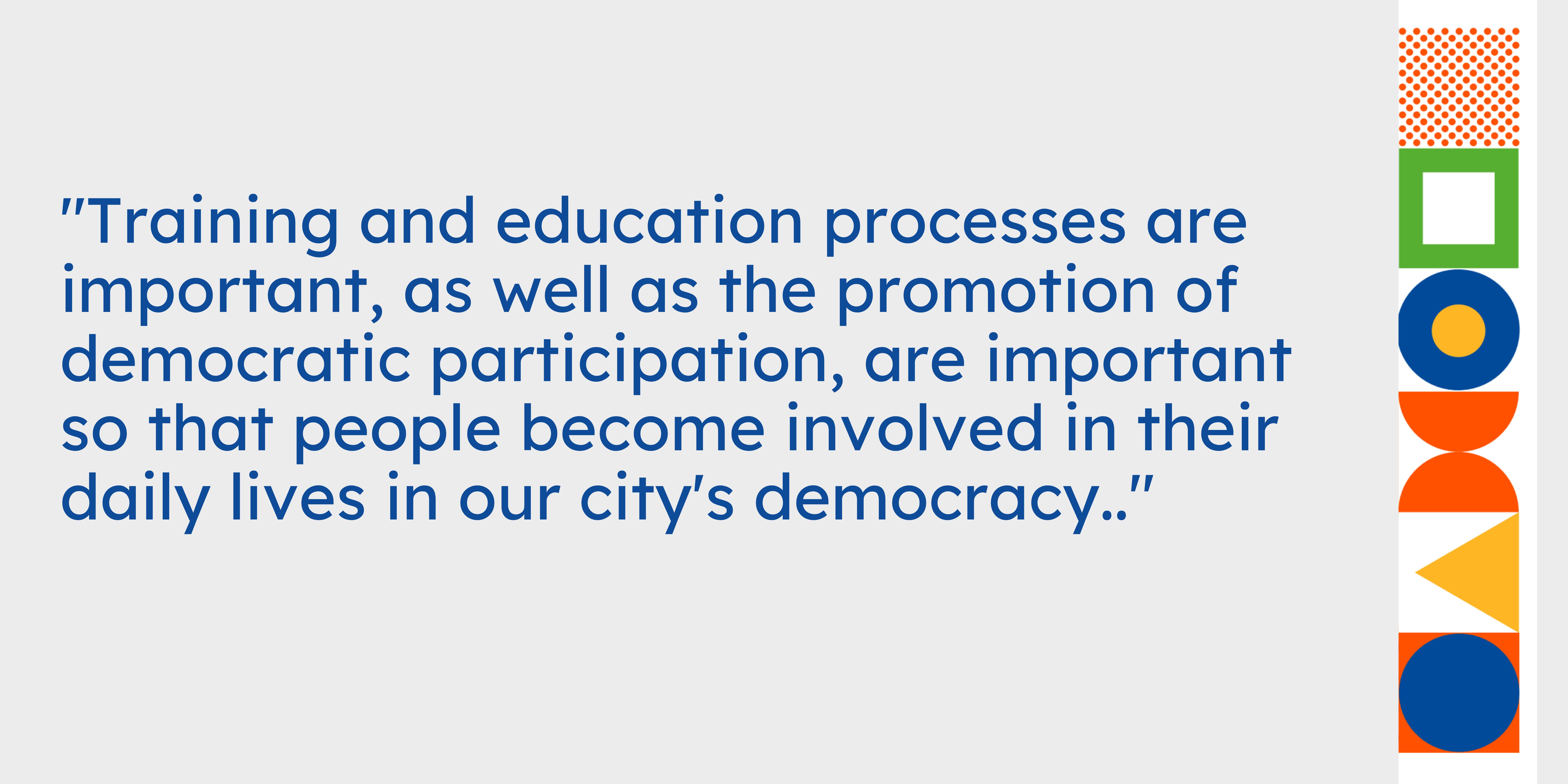
3. And what level on the ladder of participation does the IDPAC want to reach?
We want to get to the level of collaboration (level 6 of 8). We have to convince people to get involved. The latest survey shows that 92% of people consider it important to participate in social organizations, but only 8% are organized. That is why it is important for us to have tools to activate citizens and give them incentives to get organized and, as I mentioned, to counteract this very corrupt and clientelist political culture that we have historically had in Bogota.
Participatory budgets are key to this as a mechanism of democratic participation because it is a very complete and comprehensive process, since they promote citizen activation, because it is the people who decide how the city's public resources will be used. Mayor Claudia López's commitment is that the participatory budget becomes a very important pillar.
4. What is the importance of participatory budgets for building a more participatory democracy in Bogotá?
Participatory budgets are adapted to the reality of Bogota because we are a city of almost eight million inhabitants and divided into 20 localities. Each of the localities manages between 10 and 20% of the budgets. Let's say that last year we had a public budget of 130 trillion Colombian pesos (about 30 billion euros), of which 50% was allocated as decentralized resources to the localities, of this percentage, between 10 and 20% of the budgets are allocated for participatory budgets in the localities.
In a context and culture where clientelism is deeply rooted, the fact that public resources are more controlled by the citizens has a very important transforming capacity. In this way, citizens can feel that they have a voice in the decisions made in the city. For their part, the mayor's offices are accountable to the citizens and they are aware of the execution of political decisions with the budget.
We are already seeing progress: the first year we carried out the participatory budget, 12,000 proposals were presented; this year, 3,000 were presented. This is an indicator that the participatory fabric is being strengthened: citizens are getting organized and joining together in participatory groups to present joint proposals.
5. Who are the groups commonly excluded from participatory budgets in Bogotá and how does the Institute work to achieve their inclusion?
Although Bogotá is an urban city, it has a very strong rural community that has always been excluded. We must not forget that the big cities have grown behind the back of the rural and peasant sector. Therefore, our priority is to serve the rural sector in a preferential way, bringing participation mechanisms closer to these remote communities. We are aware of the digital divide, so in these communities we ensure that the vote is in person and we also hold family assemblies because the family is still a very important social nucleus in these contexts.
Other groups that have been traditionally excluded are women, but also the LGBTIQA+ community and the trans population. That is why we have moved from having a "Women and Gender Management" to a plural "Women and Gender Management" to put diversity and inclusion of the community at the forefront.
Similarly, young people are a population that traditionally has not participated in the democratic life of the city. It is a sector that has traditionally been part of extreme groups, armed groups, guerrillas and, therefore, have been excluded from the educational system and commonly stigmatized. That is why another of our important commitments is with young people, to give them the opportunities they deserve and for this reason we also have the Youth Management, dedicated to them.
In general, our approach to achieve a more diverse and inclusive participatory democracy is to recognize that our territory is characterized by a very rich ethnic and cultural diversity.
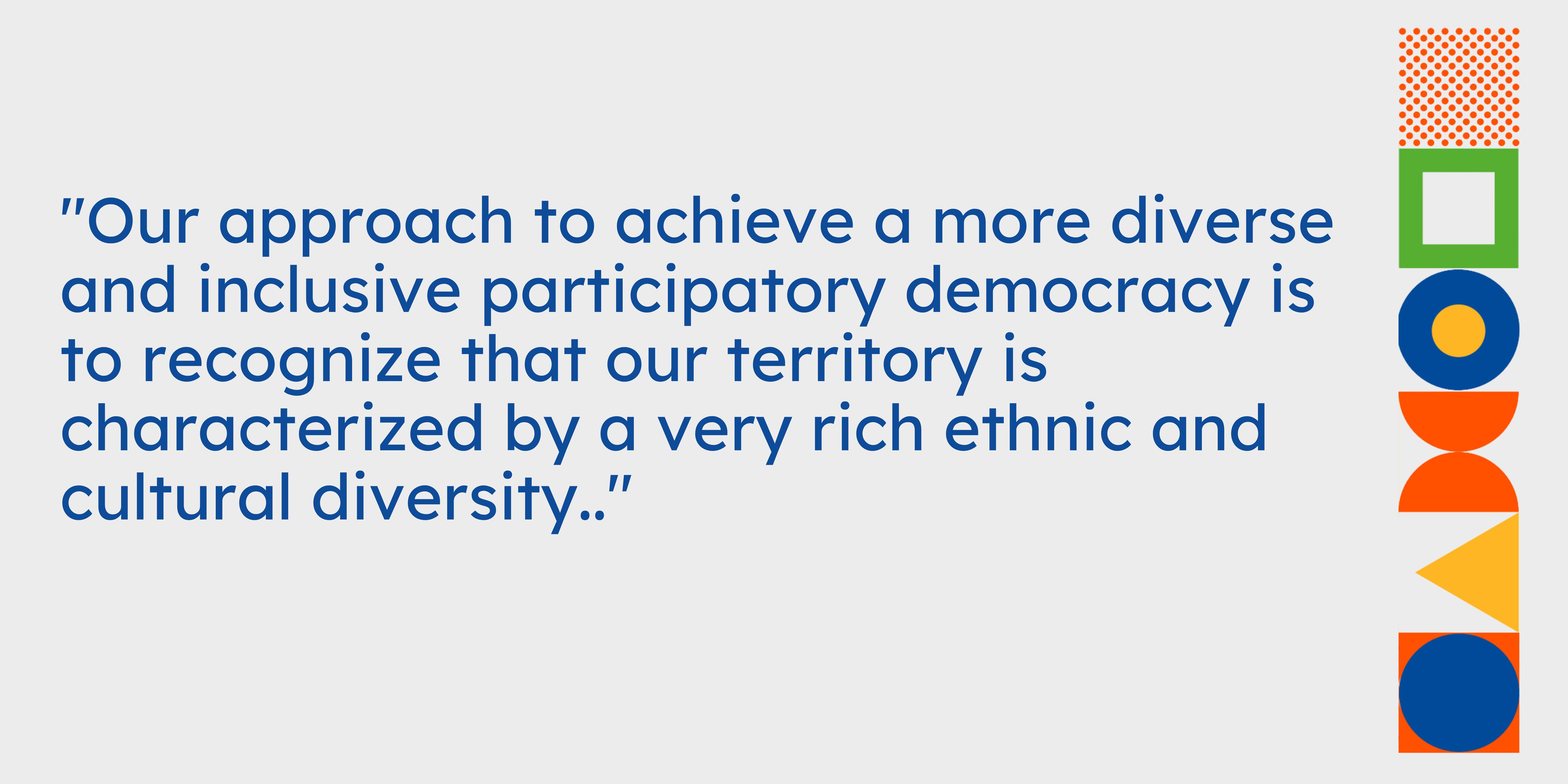
6. We know that in addition to all the local efforts that are being made within the city, Bogota is a city with a very strong global perspective, what international cooperation mechanisms and actors are key to promote a more participatory democracy at the local level?
Peer learning is very important for us: to join global participation networks, such as the IOPD, to learn from other experiences, to twin and share what we have built and innovated.
We at IDPAC are motivated to serve as a bridge between different organizations and local and regional governments. That is why we need international cooperation to incentivize social associations with resources and inject capital into their projects.
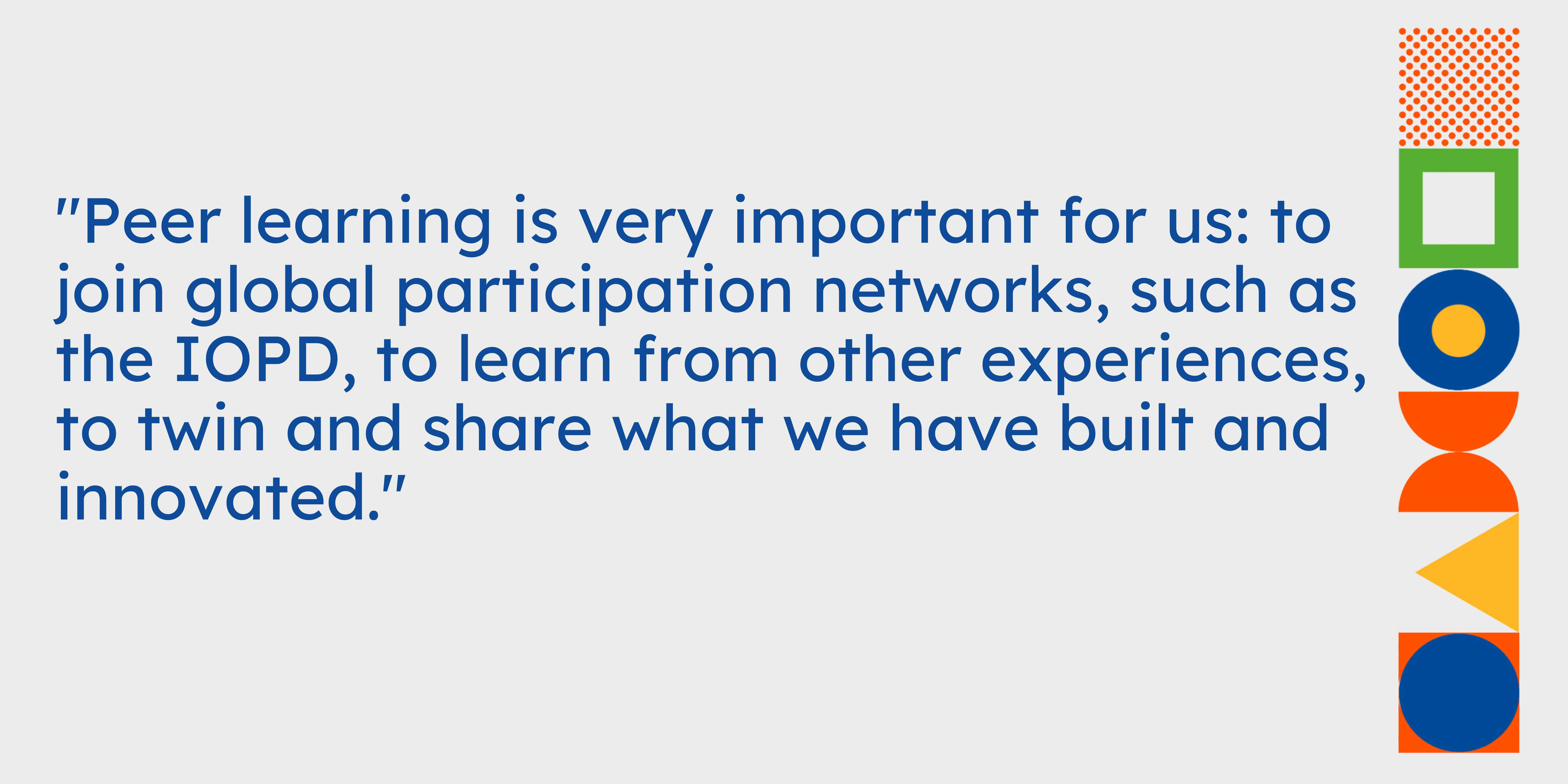
7. Can you tell us about the International Congress on Participatory Budgeting 2023? What are the objectives, guests and topics to be addressed?
This question is very important because precisely the Congress brings together all these concerns, reflections and pending tasks that we talked about in this interview. Our objective is to provide a space for citizens to know what we are doing to make their participation more active. The participatory budget has been implemented first in neighborhoods, and then throughout the city. We want to show this whole process.
We want to show the innovations that we have achieved and implemented through the laboratories. We aspire to explore the possibility for organizations to have information on how the processes are progressing, in which we have had from 50,000 to 230,000 participants. We also want to reflect on what works and what doesn't, learn from people who will come from other contexts and countries to learn about: how to get people to participate, how we can use technological tools and how we can achieve a more effective and efficient implementation of these participatory processes.
To foster these conversations, there will be panels and tables with experts and we will also invite the community to participate in the discussions.
8. Any final message you would like to send to the IOPD membership?
We look forward to seeing you all in Bogota this July 26-28 to participate in the International Congress of Participatory Processes 2023. We want to learn with you, we want you to tell us what you do and make available to everyone what we do and have here in Bogota. We also want to invite you to get to know our city: Bogota is a resilient, innovative city, with many unique places to visit.
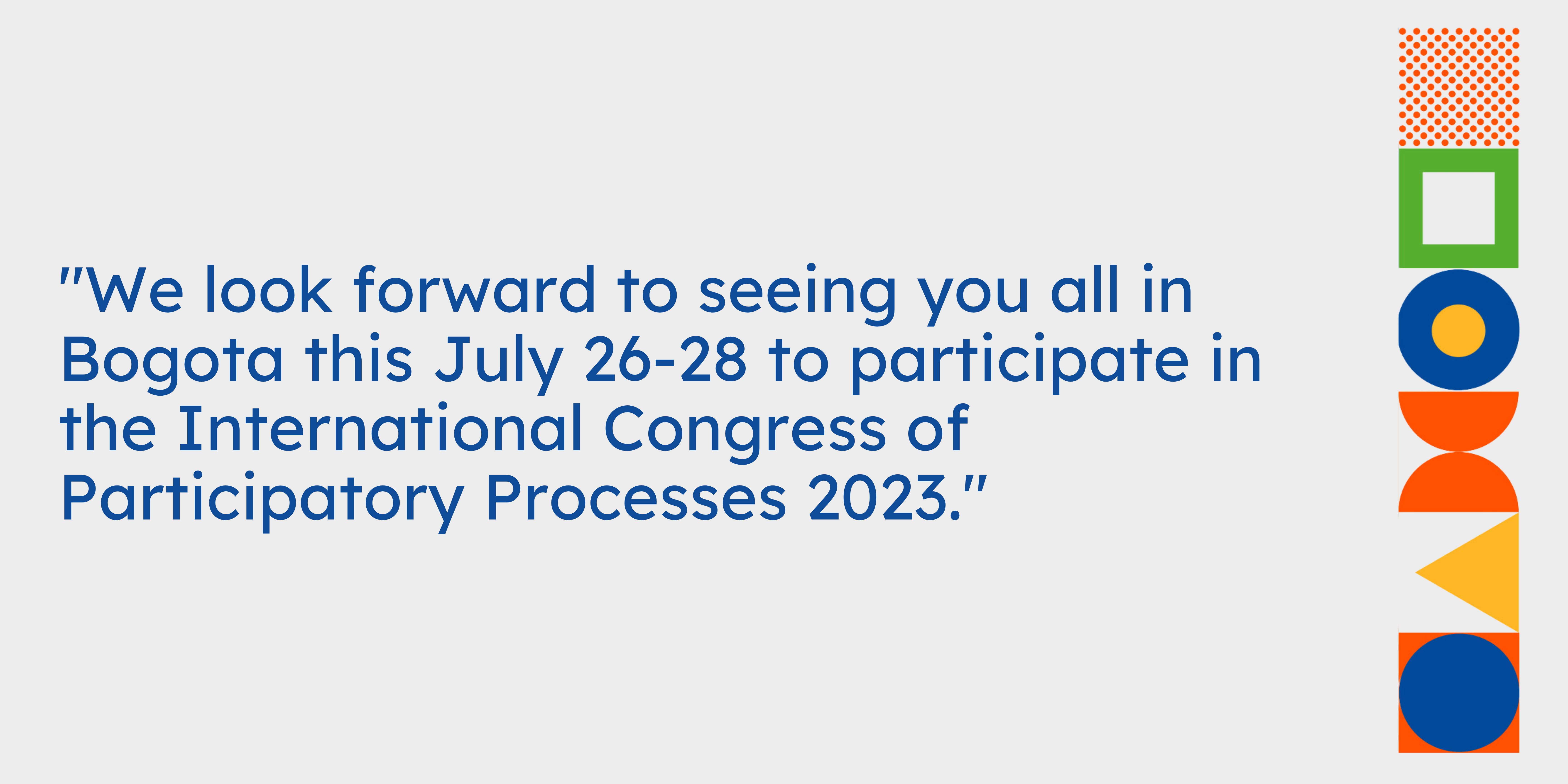
You can find all the information about it on the Congress website and on our IDPAC website.
